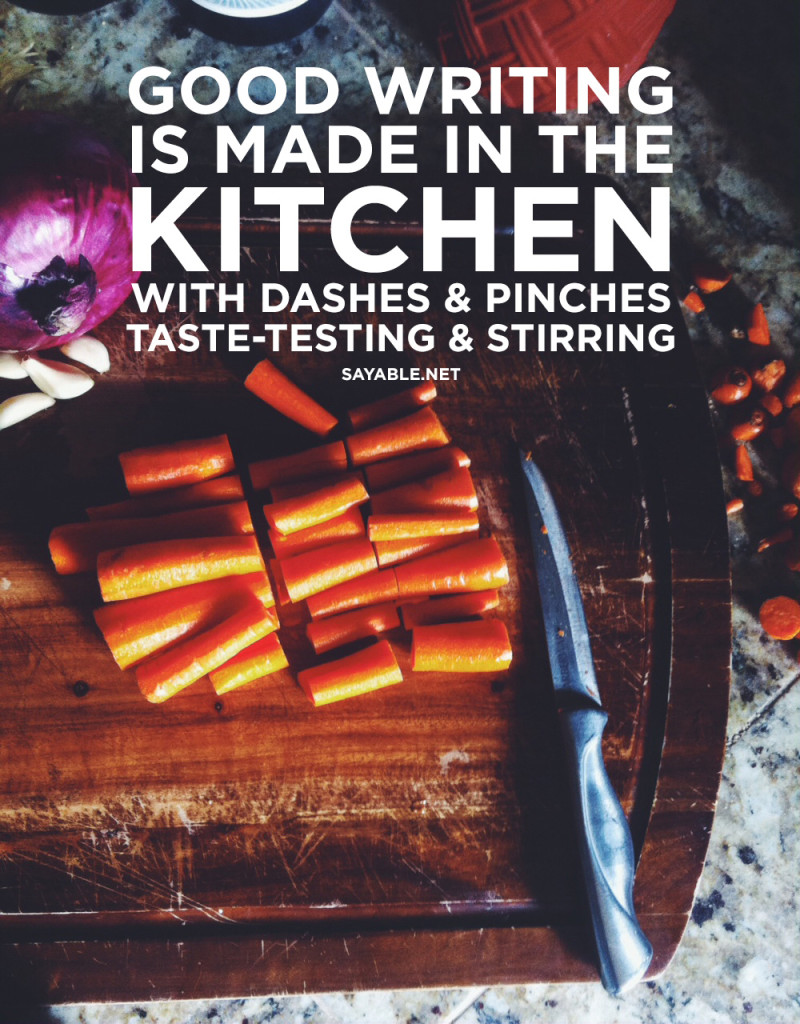Eat the Words
 I cut my teeth on L'Engle and Dillard, mulled over O'Connor and Greene, struggled though four semesters of Shakespeare, found myself in the pages of Berry and Kingsolver. Good writing has carried me along. Good writing taught me more theology than six semesters ever did.
I cut my teeth on L'Engle and Dillard, mulled over O'Connor and Greene, struggled though four semesters of Shakespeare, found myself in the pages of Berry and Kingsolver. Good writing has carried me along. Good writing taught me more theology than six semesters ever did.
In the attention deficit world of the blogosphere, it can be easy to subsist on the crumbs. Comments back and forth, public discussion and debate, he saids/she saids, commentary on every public event that happens and quickly dissipates. This is the oil that keeps the machine running, greasy stories and grimy bits that catch our fancy for a moment and flee just as quickly.
I want the slow meal. The feast prepared with wooden cutting boards and whole foods, the juices of meats flavoring the whole. The spice. The wine. The tablecloth and the candles. Shoulder to shoulder, leaving the dishes for later, much later. The slow food.
Spotlights, whether by association or viral fame, do not a good writer make. Good writing is made in the kitchen, with the dashes and pinches, the taste-testing and stirring, ruminating and storing, aging and serving. Good writing sits and satisfies from the first bite to the last. It is a chocolate cake with a dollop of homemade ice-cream, from which only one bite is needed—because it satisfies.
When I lived in Central America the close of the meal was signaled by the head of the home saying, "Satisfecho." It was a statement. I am satisfied. He would lean back in his chair, push back his plate, and we would sit there still, until all were satisfecho.
This is the writing I want to read. The kind that satisfies, that isn't clamoring for more attention, for commenting, for debate, for the spotlight. It simply is. And is beautiful.
